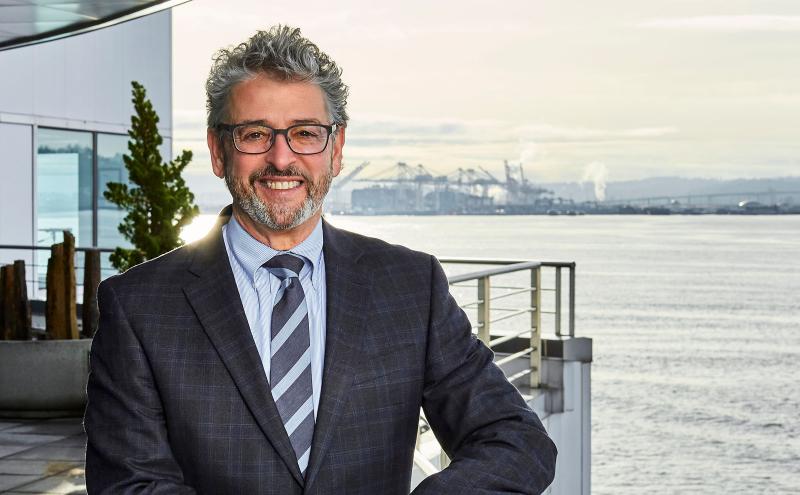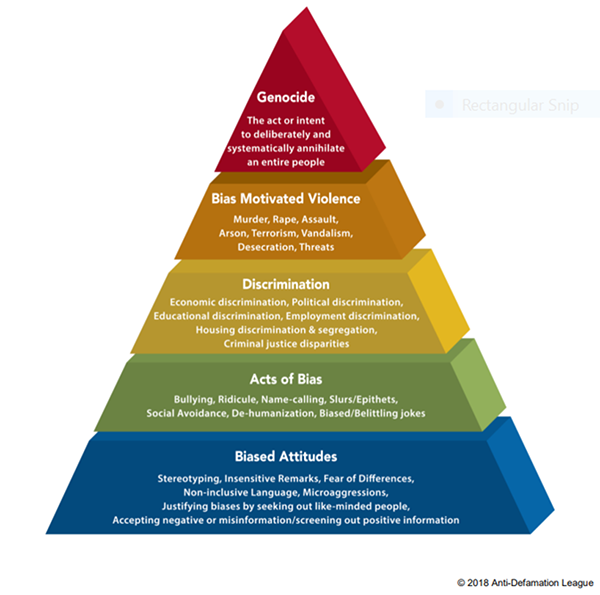
“First they came for the Communists, but I was not a Communist so I did not speak out. Then they came for the Socialists and the Trade Unionists, but I was neither, so I did not speak out. Then they came for the Jews, but I was not a Jew so I did not speak out. And when they came for me, there was no one left to speak out for me.”
—Martin Niemoeller
This quote from Martin Niemoeller, a German theologian and Lutheran pastor, best known for his opposition to the Nazi regime during the late 1930s, poetically encapsulates why it’s important for us all to remember the Holocaust and why we must stand united against anti-Semitism and all forms of hateful discrimination.
At our January 24th meeting my colleagues on the Port Commission and I passed an Order adopting the International Holocaust Remembrance Alliance’s Working Definition of Anti-Semitism that more than 1100 jurisdictions globally — including 30 states and several cities in the US embrace:
Anti-Semitism is a certain perception of Jews, which may be expressed as hatred toward Jews. Rhetorical and physical manifestations of anti-Semitism are directed toward Jewish or non-Jewish individuals and/or their property, toward Jewish community institutions, and religious facilities.
The definition is intended to be a tool for people, governments, and organizations to use as they develop educational programs and lifestyles to combat anti-Semitism.
I’m proud that the Port Commission and our Office of Equity, Diversity, and Inclusion have a solid track record of taking action to address hatred and to inspire change. Adopting the anti-Semitism definition is the extremely meaningful next step for us as we take on all forms of racism.
I intentionally offered this Commission Order on January 24th to coincide with International Holocaust Remembrance Day, which commemorates the victims of the Holocaust on the anniversary of the liberation of the Auschwitz concentration camp, January 27, 1945. The day remembers the slaughter of six million Jews — one third of the global Jewish population at the time — and several other minorities by Nazi Germany.
Unfortunately, this is also timely due to recent increase of hate crimes toward Jews. According to the Anti-Defamation League (ADL), the number of reported acts during each of the past three years are among the most since 1979.
And why is hatred such a big concern?
Because it escalates. When minor acts of bias are tolerated, they create a foundation for more severe discrimination and even violence to build upon. ADL explains this phenomenon through their very informative Pyramid of Hate.

I want to thank Miri Cypers, Regional Director for the Anti-Defamation League’s Pacific Northwest Office, and Branda Anderson, Teaching and Learning Specialist for the Holocaust Center for Humanity, for joining us at our meeting to help me and the Commission better understand what anti-Semitism is and how such hatred effects our society. Together we also spoke about anti-Semitism and the Holocaust on the Urban Northwest Forum radio magazine, hosted by Eddie Rye, Jr. that I hope you’ll take the time hear.
As part of this effort, the Port’s Office of Equity, Diversity, and Inclusion will be hosting a “Lunch and Learn” for Port employees to learn more as well.
Additional resources:
Subscribe to receive email updates from Commissioner Felleman


